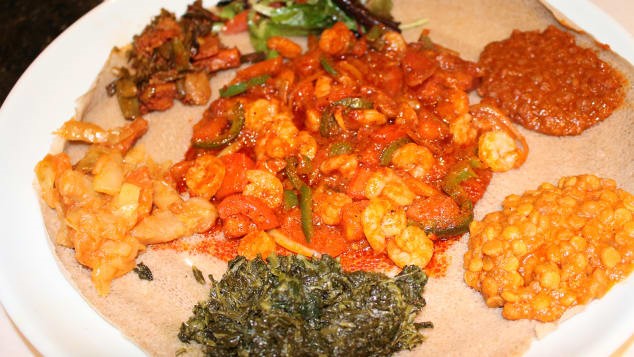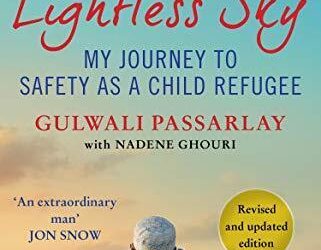
As part of our focus on emotional and mental health, explore the emotional journey of the fear and courage endured by young and unaccompanied young migrants in the UK.
INTRODUCTION
During November, we are focusing on emotions and mental health. In this blog, Miriam Richardson, a systemic family psychotherapist tells us of the challenges facing young people who have come to the UK unaccompanied. This must be one of the most challenging things anyone can imagine facing. Here, she tells of trauma but also of connection. There are lessons for all of us in this moving account of the difficulties these young people face and the courage with which they put one foot in front of another and build their lives.
Extract from Home by Warsan Shire (British Somali poet) :
You have to understand,
that no one puts their children in a boat
unless the water is safer than the land
no one burns their palms
under trains
beneath carriages
no one spends days and nights in the stomach of a truck
feeding on newspaper unless the miles travelled
means something more than journey.
Insights from working with young people
The piece that follows is based on some of the things I have learned from young people in their teens who have travelled to the UK on their own in search of asylum (‘unaccompanied asylum seekers’). I offer counselling in a young people’s counselling service, and have worked with a number of young people with these experiences, mostly boys aged between 16 and 19 years.
Age is a critical factor in the lives of these young people. If they are under 18 on arrival in the UK they have the same statutory rights for help and support as a Looked After Child living in foster care or a residential home. Support as a ‘care leaver’ is reduced when they reach 18 but still available. If they are over 18 on arrival in the UK they are regarded as ‘adult’, and can claim little public support. And if they are over 18 and their application and appeals for asylum have been unsuccessful (Appeal Rights Exhausted) they may find themselves homeless, with around £30 a week to live on, and unable to work or even volunteer, with no recourse at all to public funds.
The emotional challenges
The young people who have talked to me have struggled with three overriding concerns. A big concern is adapting to life in the UK, while feeling cut-off from the mainstream of society by language, culture and circumstances. ‘Everything is different here’ was how a sixteen year old expressed his disorientation. Until their asylum status is resolved (which may take many months or even years) that is a huge worry, and they live in a limbo of constant uncertainty: ‘Will I be able to stay and build a life here? Or will they send me back?’
A second cause of distress is all these young people have lost. There’s a loss of identity as they struggle with ‘Who am I here, and now?’ But most distressing is loss of parents and family. Sometimes parents have died in conflict. Sometimes they have themselves fled and the young person has no knowledge of whether they are alive or dead. Sometimes the young person has lost all means of contacting them. ‘My mother is everything to me.’ ‘I need my family. Someone of my age should have their family to look after them and guide them. I have no-one.’ Along with loss of family is loss of community: the village, the friends, the neighbours, the dog, the mountains. Sometimes they have had to leave their homeland very suddenly with no opportunity to say goodbye even to a parent.
The third emotional challenge concerns the traumatic experiences these young people – youngsters of 15, 16 years of age – have lived through. These may be events that led to having to leave their homeland. Particularly distressing are the experiences they faced on their journey to the UK, a journey that may have taken a couple of months or several years. Some have witnessed killing and rape. When I asked one 16 year old about why he wanted to come for counselling he said: ‘I have seen things a person of my age should never see’. Imprisoned in warehouses in Libya, used as slave labour and beaten, without food and water in lorries for days, crossing the Mediterranean in unfit boats. And then the sorrow of knowing that you may have been lucky and reached safety here, but your friends are still suffering in other countries. These traumas make it difficult to sleep, invade dreams and haunt empty spaces in their young lives.
Connection and support
In spite of all these challenges, the young people I have worked with have shown resilience and an ability to survive, with a human spirit that remains hopeful and above all charged with empathy for others. They are helped to rebuild their lives as young people (not merely ‘asylum seekers’) with practical and emotional support. Important to them is a safe place to live, with responsive Support Workers, Social Workers, Personal Advisers. Also important is connection with people speaking their own language and from their own community. One told us that when he arrived in the UK he had nothing, just the clothes he was wearing. After a few days his support worker put him in touch with others from his homeland, and they gave him some of their clothes and shared their food with him until support from social services was available. These connections through language and culture and above all food remain important in his life. To have a structured day, being able to learn English, join a gym, play football, to have a mobile phone to keep in touch with others, are lifelines that help re-order a life that has been tumultuous. For many I have worked with, their faith is powerful resource, providing a thread of continuity between life before and life now, a continuation of values and a security of belonging and being held. And for some, therapy or counselling are helpful, or just a trusted person to talk to, where the vulnerabilities and the tears of loss can be expressed – things a young man may not always want to share with his mates. Those who support them can welcome their whole humanity as young people with hopes and potentials, not merely ‘asylum seekers’, confirming and building on strengths and resilience so they can develop a solid base from where they will be more able to deal with the multiple challenges they face.
There may be organisations in your area that offer counselling to unaccompanied asylum seekers. Refugee Council MyView is such a service:
Top tip for anyone migrating to the UK:
Maintain connection
- With those you love: in your heart if not in person
- With others from your community here
- With anyone you can: the smile in the street, the thanks to the bus driver, the Hello to your neighbour.
‘The most resilient are those who manage to maintain connection’. (Herman, J. (1992) Trauma and Recovery: The Aftermath of Violence. New York: Basic Books)
Before You Leave (extract)
Choman Hardi (Kurdish poet).
From Considering the Women Bloodaxe Books 2015
Thanks to Jacob Pollet’s ‘Moving House’
Wrap your language in plenty of silk,
each word separated from the other
so that they don’t rub, get scratched.
Don’t forget the words you never use,
as years go by and details fade
you may need them.
Take a suitcase
full of your thirsty mountains,
they will thrive in that rain.
Pack the voices of your neighbourhood
in a musical box, firmly locked
for the long journey.
Your father will always be with you
each time you take a step,
make a decision, or refrain.
Footnote: The way of eating in Eritrea is communal, with everyone gathering around a large circular metal tray of injera helping themselves from the various piles of foodstuffs with strips of injera torn from the edges. Eritrean young people tell me they would always eat with others back home. They find it hard to eat alone, and try to recreate communal mealtimes here.






